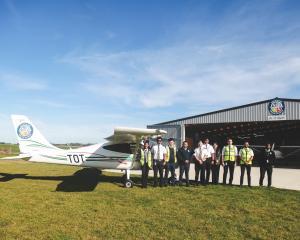Complaints about Dunedin dogs have dropped.
There were 2193 dog complaints for the area covered by the Dunedin City Council in the year to June, which was down 349 on the previous year.
This was one fact in the council’s animal services annual report for the Department of Internal Affairs.
Various others showed a dip in dog ownership, fewer dogs being impounded and an increase in infringement notices.
The council’s area includes Mosgiel, Middlemarch and rural stretches such as much of the Taieri Plain and coastal land north of Dunedin.
The area had 18,552 registered dogs as of June 30 this year, which was 324 fewer dogs than a year earlier.
Registration fees had not moved and the vast majority of registered dogs were pets — 18,101.
A significant reduction in complaints was part of a mixed picture about dog behaviour.
About 30% of complaints were in relation to wandering dogs, 31% for barking and others were for aggression or dogs having to be contained by members of the public.
A total of 334 infringement notices were issued, up 26 on the previous year.
No dog owners were prosecuted for a breach of the Dog Control Act.
Fifteen dogs were classified by the council as dangerous — four more than the previous year.
The council has 159 dogs classified as menacing, including 20 added in the past year.
Of the 20, 17 were for behavioural reasons and three because of the breed.
The number of dogs impounded was 160, down 32 on the previous year.
One dog died because of a medical event while in custody at the pound, the report said.
The city council has a policy to encourage responsible dog ownership and this can make owners eligible for discounts on fees.
A series of four educational videos was created, offering tips for dog owners.
The council also ran a school and community group education programme about dog ownership and sessions were available for primary, intermediate and preschool children, as well as workplaces.
Because of the high number of complaints about barking, animal control officers continued to use "bark boxes" to record barking.
This device was found to be invaluable when dealing with barking complaints, particularly when dog owners were often not at home and did not realise how often their dogs were barking, the report said.
Dunedin had more than 11,000 pet dogs that had been neutered.
The council covered the costs of a dog neutering programme for owners who would have difficulty paying for it.
The proportion of dogs microchipped remained at 94%.











